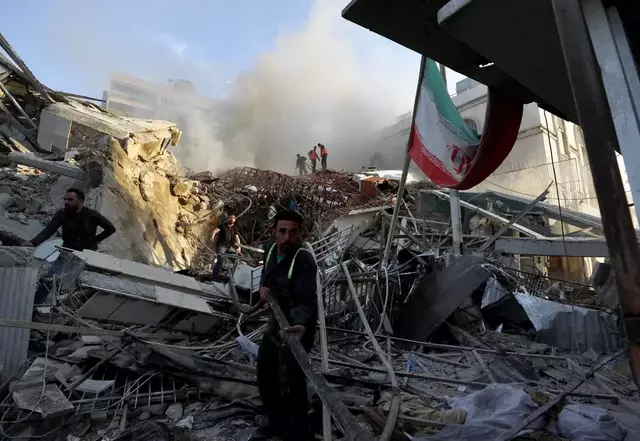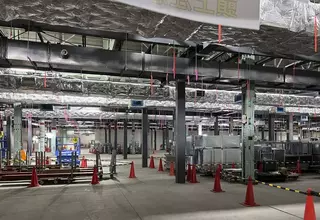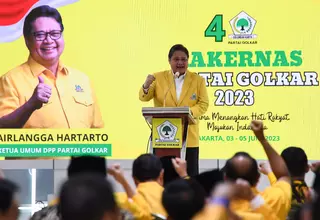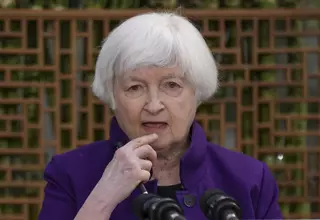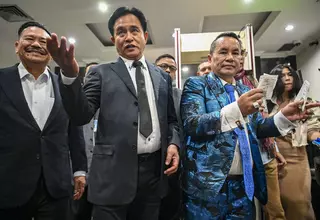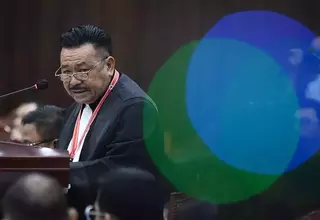G7 Agrees Need Strong Message on South China Sea; China Says Don't 'Hype'

Ise-Shima, Japan. Group of Seven (G7) leaders agreed on Thursday (26/05) on the need to send a strong message on maritime claims in the western Pacific, where an increasingly assertive China is locked in territorial disputes with Japan and several Southeast Asian nations.
The agreement prompted a sharp rejoinder from China, which is not in the G7 club but whose rise as a power has put it at the heart of some discussions at the advanced nations' summit in Ise-Shima, central Japan.
"Prime Minister (Shinzo) Abe led discussion on the current situation in the South China Sea and East China Sea. Other G7 leaders said it is necessary for G7 to issue a clear signal," Japanese Deputy Chief Cabinet Secretary Hiroshige Seko told reporters after a session on foreign policy affairs.
At a news conference late on Wednesday, Abe said Japan welcomed China's peaceful rise while repeating Tokyo's opposition to acts that try to change the status quo by force. He also urged respect for the rule of law. Both principles are expected to be mentioned in a statement after the summit.
The United States is also increasingly concerned about China's action in the region.
Chinese Foreign Ministry spokeswoman Hua Chunying retorted in Beijing that the South China Sea issue had "nothing to do" with the G7 or any of its members.
"China is resolutely opposed to individual countries hyping up the South China Sea for personal gain," she said.
US President Barack Obama called on China on Wednesday to resolve maritime disputes peacefully and he reiterated that the United States was simply concerned about freedom of navigation and overflight in the region.
Obama on Thursday pointed to the risks from North Korea's nuclear and missile programs, saying the isolated state was "hell bent" on getting atomic weapons.
But he said there had been improved responses from countries in the region like China that could reduce the risk of North Korea selling weapons or nuclear material.
"It's something that we've put at the center of discussions and negotiations with China," Obama told reporters.
Seko, speaking the first of two days of the summit in central Japan, said Abe told G7 counterparts that Pyongyang's development of nuclear technology and ballistic missiles poses a threat to international peace, including in Europe.
"It is necessary to make North Korea realize that it would not be able have a bright future unless such issues as abduction, nuclear and missile development are resolved," Abe told the group, according to Seko.
The G7 groups Britain, Canada, France, Germany, Italy, Japan and the United States.
GLOBAL HEALTH CHECK
The global economy topped the agenda earlier in the day, when G7 leaders voiced concern about emerging economies and Abe made a pointed comparison to the 2008 global financial crisis. Not all his G7 partners appeared to agree.
The G7 leaders did agree on the need for flexible spending to spur world growth but the timing and amount depended on each country, Seko told reporters, adding that some countries saw no need for such spending. Britain and Germany have been resisting calls for fiscal stimulus.
"G7 leaders voiced the view that emerging economies are in a severe situation, although there were views that the current economic situation is not a crisis," Seko said.
Abe presented data showing global commodities prices fell 55 percent from June 2014 to January 2016, the same margin as from July 2008 to February 2009, after the Lehman collapse.
Lehman had been Wall Street's fourth-largest investment bank when it filed for Chapter 11 protection on Sept. 15, 2008, making its bankruptcy by far the biggest in U.S. history. Its failure triggered the global financial crisis.
Abe hopes, some political insiders say, to use a G7 statement on the global economy as cover for a domestic fiscal package including the possible delay of a rise in the nation's sales tax to 10 percent from 8 percent planned for next April.
Obama ripped into Republican presidential candidate Donald Trump, saying the billionaire had rattled other G7 leaders and that his statements were aimed at getting headlines, not what was needed to keep America safe and the world on an even keel.
Trump has been accused of racism, misogyny and bigotry for saying he would build a giant wall to keep out illegal Mexican immigrants, would temporarily ban Muslims from the United States and issued a series of comments considered demeaning to women.
Summit pageantry began when Abe escorted G7 leaders to the Shinto religion's holiest site, the Ise Grand Shrine in central Japan, dedicated to sun goddess Amaterasu Omikami, mythical ancestress of the emperor.
On Wednesday night, Abe met Obama for talks dominated by the arrest of a US military base civilian worker in connection with the killing of a young woman on Japan's Okinawa island, reluctant host to the bulk of the U.S. military in Japan.
The attack dimmed Obama's hopes of keeping his Japan trip strictly focused on his visit on Friday to Hiroshima, site of the world's first atomic bombing, to highlight reconciliation between the two former World War Two enemies as well as his nuclear anti-proliferation agenda.
Reuters
Tags: Keywords:POPULAR READS
Nissan to Make Next-Generation EV Batteries by Early 2029
Solid-state batteries are widely seen as the next step for EVs.Airlangga Set to Extend Leadership in Golkar After Election Success
Under his leadership, Golkar rose to the second position in the legislative polls and successfully made Gibran the elected vice president.Yellen Says Iran's Actions Could Cause Global 'Economic Spillovers'
Iran's missile attack on Israel early Sunday came in response to what it says was an Israeli strike on Iran's consulate in Syria.Takeaways from Prabowo's Responses to Legal Motion Contesting His Election Win
Part of the argument addresses the claim that the candidacy of Gibran Rakabuming Raka, Prabowo’s running mate, is unlawful.Prabowo Camp Cites ‘Procedural Error’ in Legal Challenge by Rival Candidates
The Constitutional Court's main task is to address alleged discrepancies in vote tallies, which neither of the plaintiffs challenged.Popular Tag
Most Popular
